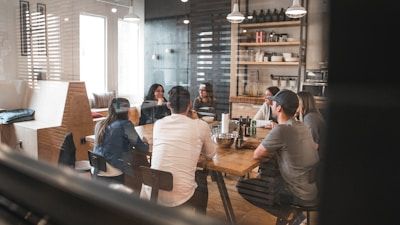The Role of Workplace Experience in Enhancing Overall Employee Experience

By treating employees as consumers of the workplace, organisations are adopting a 'hospitality' mindset to enhance the employee experience at every touchpoint.
The Shift from facilities management to workplace experience
Traditionally, facilities management focused on the operational aspects of a workspace: maintenance, utilities, space planning, and safety compliance. While these elements remain critical, the scope has expanded to encompass the overall environment and experience that employees encounter daily. This evolution mirrors the shift in customer service paradigms, where the goal is no longer just to meet basic needs but to exceed expectations and foster loyalty.
Employees as Consumers: A Hospitality Mindset
- Personalisation: Just as hotels and restaurants strive to personalise the guest experience, workplaces are now tailoring environments to individual employee preferences. This can range from customisable workstations to flexible work hours, acknowledging that a one-size-fits-all approach is no longer viable.
- Service excellence: In hospitality, service excellence is paramount. Translating this into the workplace means providing responsive and proactive support. Whether it’s IT assistance, ergonomic adjustments, or wellness programs, ensuring employees have what they need to perform their best is crucial.
- Ambiance and environment: The physical and psychological environment plays a significant role in how employees feel and perform. Aesthetically pleasing and functionally designed spaces that promote collaboration and creativity can significantly enhance the employee experience.
- Holistic well-being: Beyond physical comfort, a hospitality approach to workplace experience considers emotional and mental well-being. This can include access to mental health resources, spaces for relaxation, and initiatives that promote a healthy work-life balance.
Enhancing the Employee Journey
Onboarding: A smooth and engaging onboarding process sets the tone for the employee’s tenure. Personalised welcome kits, comprehensive training programs, and assigned mentors can help new hires feel valued and integrated from day one.
Daily interactions: Regular check-ins, feedback mechanisms, and opportunities for professional development are essential. Creating an environment where employees feel heard and supported fosters a sense of belonging and motivation.
Recognition and rewards: Acknowledging employees' contributions and milestones with personalised rewards and recognition programs can significantly boost morale and loyalty.
The Role of Technology
Several forward-thinking organisations have successfully implemented these principles, reaping tangible benefits in employee satisfaction and productivity.
- Google: Known for its innovative office designs, Google provides employees with diverse workspaces, from quiet zones to collaborative areas, catering to different work styles and needs.
- Airbnb: Airbnb’s headquarters reflect its hospitality roots, featuring open, home-like spaces that encourage collaboration and creativity. The company’s emphasis on employee well-being includes wellness programs and ample opportunities for professional growth.
- Salesforce: Salesforce prioritises employee experience through its Ohana culture, emphasising community and family. The company’s offices are designed to be inclusive, with spaces for relaxation, socialisation, and mindfulness.
The future of workplace experience
As the
concept of workplace experience continues to evolve, the future promises even
more integrated and employee-centric approaches. Organisations will
increasingly leverage data to understand and anticipate employee needs,
creating environments that are not just places to work but ecosystems that
nurture innovation, collaboration, and well-being.
Sign
up to The EX Space today to explore further content and resources related to
this topic, including:
- Members only blog: The EX Landscape model
- Journey mapping Tool (for professional members): Uncover your focus with journey mapping
- Members only blog: The future of work: Leveraging IoT to create a better employee experience

